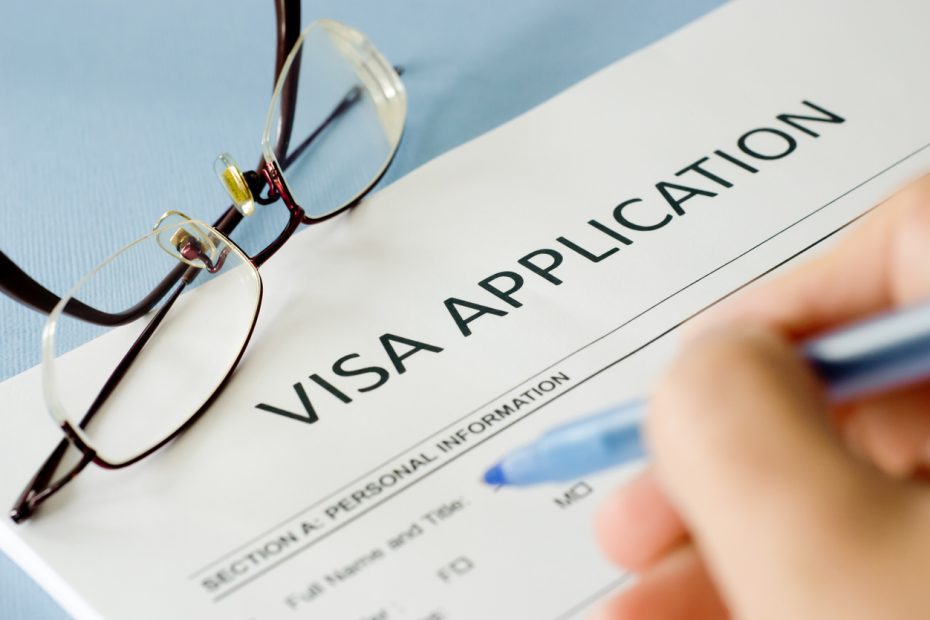Studying abroad is an exciting opportunity for students to gain new experiences, skills, and perspectives. However, navigating the visa process can be a daunting task for many. Obtaining the proper visa is crucial for students to legally enter and stay in their destination country during their studies.
In this blog post, we will provide useful tips for students to successfully navigate the visa process when planning to study abroad.
We will cover topics such as understanding visa requirements, starting the visa process early, seeking assistance, preparing for the visa interview, and staying patient and flexible throughout the process. By following these tips, students can ensure a smooth and stress-free visa process, and focus on their studies and experiences abroad.
Know the Requirements
Knowing the visa requirements for the country of destination is the first step in the visa process. Researching the requirements can help students determine the type of visa they need and what documents they need to prepare.
Students should visit the official website of the embassy or consulate of the destination country and carefully read through the visa requirements.
There are different types of visas available for students, such as student visas, work-study visas, and exchange visitor visas. Students need to understand the specific requirements for each type of visa and choose the one that fits their needs.
Gathering all necessary documents is also crucial for a successful visa application. The required documents may vary depending on the type of visa and the destination country. Common documents include a valid passport, proof of financial support, an acceptance letter from a university or school, and a completed visa application form.
Students should check the embassy or consulate website for a list of required documents and make sure to gather them all in advance. It’s also a good idea to make copies of all documents for backup.
By researching visa requirements, understanding the types of visas available, and gathering all necessary documents, students can increase their chances of a successful visa application.
Start the Visa Process Early
Starting the visa process early is crucial to ensure enough time for processing and to avoid any last-minute stress or complications.
Students should plan and be aware of the processing times for their destination country’s visa. Processing times can vary greatly, from a few weeks to several months, depending on the country and type of visa.
To avoid any unexpected delays, students should allow extra time for the visa application process. They should account for any potential issues, such as missing documents or a lengthy processing time.
Additionally, it’s important to note that some countries may have specific visa application deadlines or quotas, so students should check with the embassy or consulate to make sure they apply on time.
Would You Like To Apply For This Jobs/Sponsorship?
Enter Your Email Address HERE & You Will Receive a Notification About Your Application. If it shows "Subscribed" CLICK HERE to follow on Telegram for updatesFinally, students should apply for a visa as soon as possible. Don’t wait until the last minute, as this can lead to unnecessary stress and complications. Starting the visa process early can also give students more time to prepare for the move and to make any necessary arrangements, such as housing and travel.
In summary, by starting the visa process early, planning, allowing for unexpected delays, and applying for the visa as soon as possible, students can ensure a smooth and stress-free visa application process.
Seek Assistance
Seeking assistance can be very helpful for students navigating the visa process. There are several resources available that can provide guidance and support, such as:
Contacting the embassy or consulate: The embassy or consulate of the destination country can provide valuable information and guidance on the visa application process. Students can contact the embassy or consulate directly by phone, email, or in person to ask questions or request assistance.
Seeking advice from previous students or alumni: Talking to students who have already gone through the visa application process can provide valuable insights and advice. Students can reach out to alumni or previous study abroad participants through social media or university programs to ask for advice.
Consulting with study abroad programs or advisors: Many universities have study abroad programs and advisors that can provide guidance and support throughout the visa application process. Students can reach out to their university’s study abroad office or advisor to ask questions and get help with the visa application.
By seeking assistance from these resources, students can feel more confident and informed throughout the visa application process and can ensure that they have all the information and support they need to successfully obtain their visa.
Prepare for the Interview
Preparing for the visa interview is an important part of the visa application process. Students should be aware of what to expect during the interview process, prepare answers to common questions, dress appropriately, and be punctual. Here are some tips:
- Knowing what to expect during the interview process: Students should research the visa interview process for their destination country and understand what to expect. They should know what documents to bring, how long the interview will last, and what questions will be asked.
- Preparing answers to common questions: Students should prepare answers to common questions that may be asked during the visa interview, such as questions about their intended program of study, their reasons for choosing the destination country, and their plans after graduation. Students should be honest and clear in their answers.
- Dressing appropriately: Students should dress appropriately for the visa interview. They should dress in business attire and avoid wearing anything too casual or revealing. Dressing appropriately shows respect for the visa process and demonstrates that the student takes the process seriously.
- Being punctual: Students should arrive on time for the visa interview. They should plan to arrive early to account for any unforeseen delays or traffic. Being punctual demonstrates responsibility and respect for the visa process.
By preparing for the visa interview, students can increase their chances of a successful outcome. By knowing what to expect, preparing answers to common questions, dressing appropriately, and being punctual, students can feel more confident and ready to face the visa interview process.
Be Patient and Flexible
The visa application process can be lengthy and unpredictable, and it’s important for students to be patient and flexible throughout the process. Here are some tips for staying patient and flexible:
- Understanding that the visa process can be lengthy and unpredictable: Students should be prepared for the possibility that the visa process may take longer than expected or that unexpected issues may arise. They should stay informed about the process and be patient as they wait for their visa to be processed.
- Being willing to adjust plans if necessary: Students should be willing to adjust their plans if necessary. For example, if their visa application is delayed or denied, they may need to adjust their travel plans or postpone their program of study. Being flexible and adaptable can help students overcome any challenges that may arise.
- Keeping a positive attitude throughout the process: It’s important for students to maintain a positive attitude throughout the visa application process. They should focus on the end goal of studying abroad and stay motivated, even if the process is frustrating or stressful. Staying positive can help students stay patient and flexible during the visa application process.
In summary, by understanding that the visa process can be lengthy and unpredictable, being willing to adjust plans if necessary, and keeping a positive attitude throughout the process, students can navigate the visa process successfully and with minimal stress.
Final Note
Obtaining a visa for studying abroad can be a daunting process, but with careful planning and preparation, students can navigate it successfully.
Key takeaways from this blog post include knowing the visa requirements, starting the visa process early, seeking assistance from the embassy or consulate, study abroad programs or advisors, and preparing for the interview. Being patient, flexible, and positive throughout the process is also important.
Students are encouraged to start the visa process early, gather all necessary documents, and seek assistance when needed. By doing so, they can avoid unexpected delays and ensure a smoother and more successful visa application process.
Finally, it is important to keep in mind that obtaining a visa is only one part of the process of studying abroad.
Once the visa is secured, students can focus on making the most of their study abroad experience and immersing themselves in a new culture, language, and environment.
With proper planning and preparation, studying abroad can be a life-changing experience that broadens horizons, enhances career prospects, and creates lasting memories.






